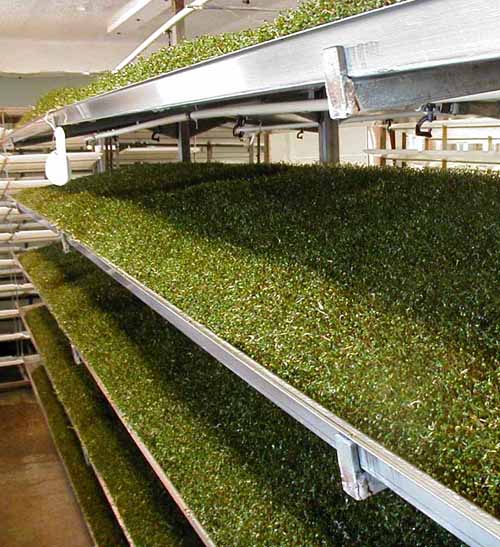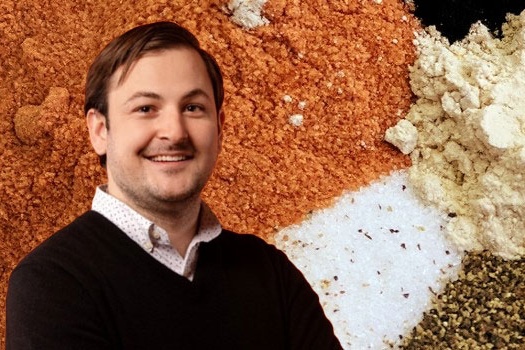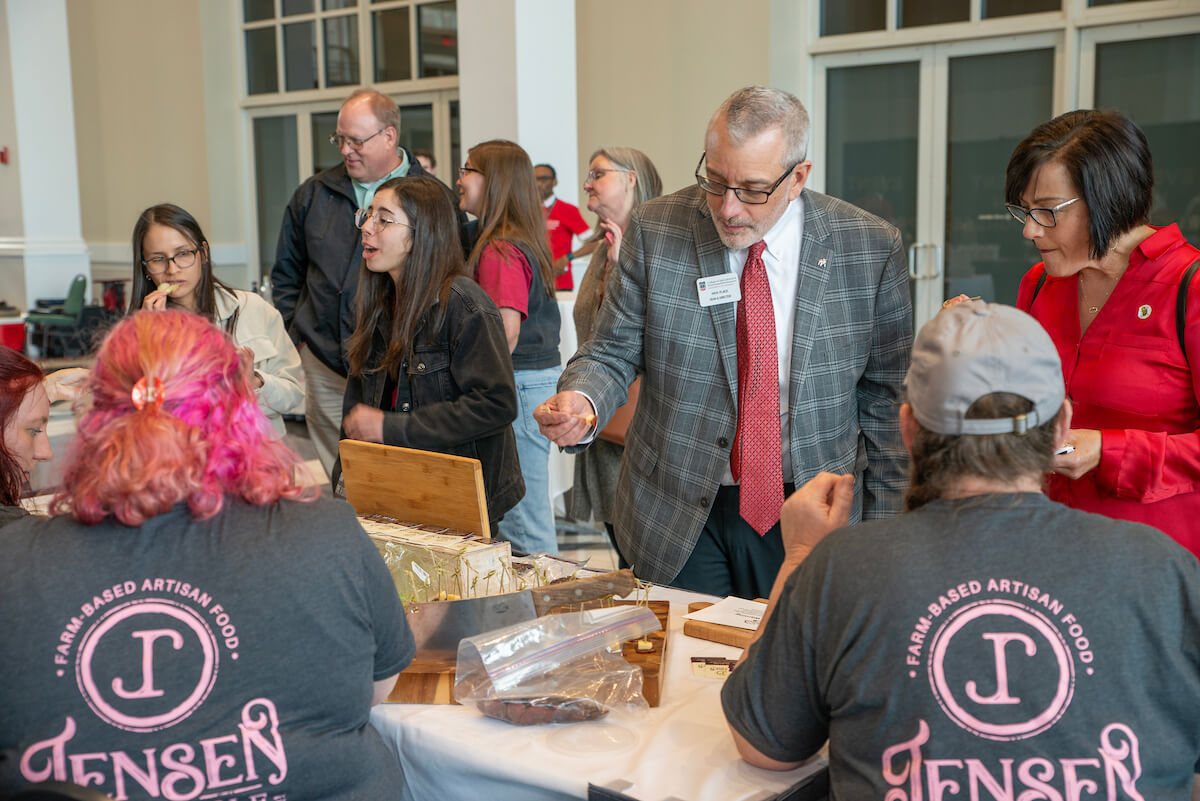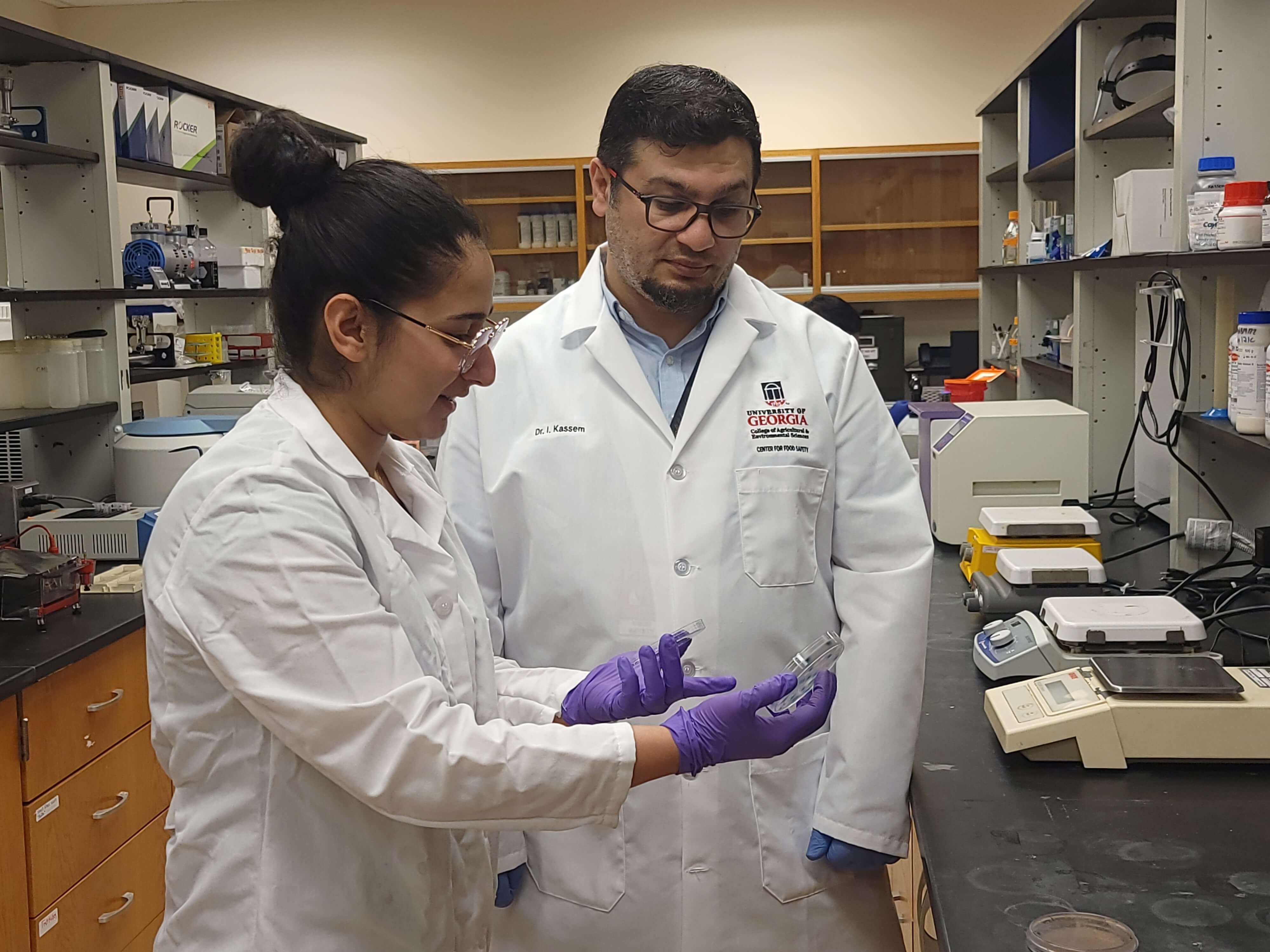University of Georgia scientists have developed a method to make fresh alfalfa sprouts safer to eat by treating the seeds used to grow them. Sprouts adorn many restaurant salad bars, and are considered by many a healthy fresh vegetable. But, they are one of the main foods linked to foodborne illness in the U.S.
According to the Centers for Disease Control and Prevention, since 1996 at least 30 reported outbreaks of foodborne illness have been associated with sprouts, typically contaminated with salmonella or E coli.
Labeled safe by FDA
UGA food microbiologist Michael Doyle and his colleague Tong Zhao have developed a new process to soak seeds in a solution that kills pathogens. The Food and Drug Administration consider its components safe for use in sprouts and several foods, he said. UGA is in the process of patenting the process.
The new UGA treatment is safe for sprout growers to use and promotes better seed germination. “The more seeds that sprout, the better the profitability for the grower,” said Doyle, director of the UGA Center for Food Safety in Griffin, Ga.
To grow sprouts, seeds are submerged in water and held at temperatures between 65 and 75 degrees for three to four days. These are also ideal conditions for growing harmful bacteria like salmonella and E. coli, Doyle said.
Less harsh than previous method
UGA food microbiologist Larry Beuchat developed one of the currently available treatment methods for killing bacteria on seeds used for sprouts. It is a calcium hypochlorite method that is highly effective but harsh and irritates the eyes, nose and lungs of those applying the treatment, Doyle said. For this reason, some producers prefer not to use it.
Sprout grower Bob Sanderson supports UGA food scientists’ efforts to find a safe and effective way to kill harmful microbes on his crop. For the past 35 years, Sanderson has operated Jonathan Sprouts Inc. where 10 different varieties of sprouts are produced for supermarket chains in New England, New York and New Jersey.
Growers rely on testing
“This is certainly a major problem, and we are always really open to new approaches to making our product safer,” said Sanderson, president of the International Sprout Growers Association. “The number of growers is smaller than it was 10 years ago because of the food safety issues. We are interested in ways to try to restore confidence in our product.”
Sanderson sanitizes his seeds with chlorine, a method he says isn’t consistently effective. To ensure he ships safe sprouts, Sanderson tests them to detect pathogens before they head to market.
Based on his food safety knowledge, Doyle never eats sprouts and recommends that children, the elderly and those with weakened immune systems avoid them, too.
“I swore them off long ago, and I’ve been preaching this message since then,” he said. “Sprouts are considered by many food safety experts to be one of the most hazardous of foods because of how they are grown.”
Method being studied on other seeds and flowers
Ron Walcott, a UGA plant pathologist in the College of Agricultural and Environmental Sciences, is testing the new treatment on watermelon and other fruit seeds to help prevent plant diseases in fields. He is also working with a national fresh cut flower supplier to see if the treatment will kill floriculture diseases and help prolong the shelf life of fresh cut flowers.









